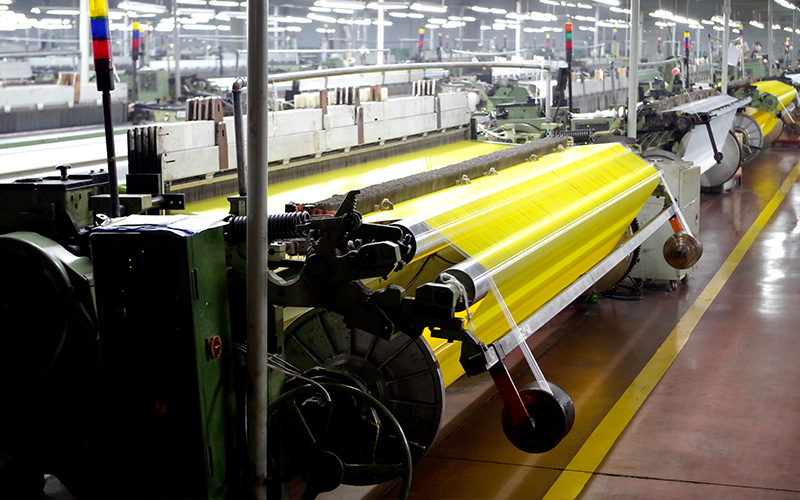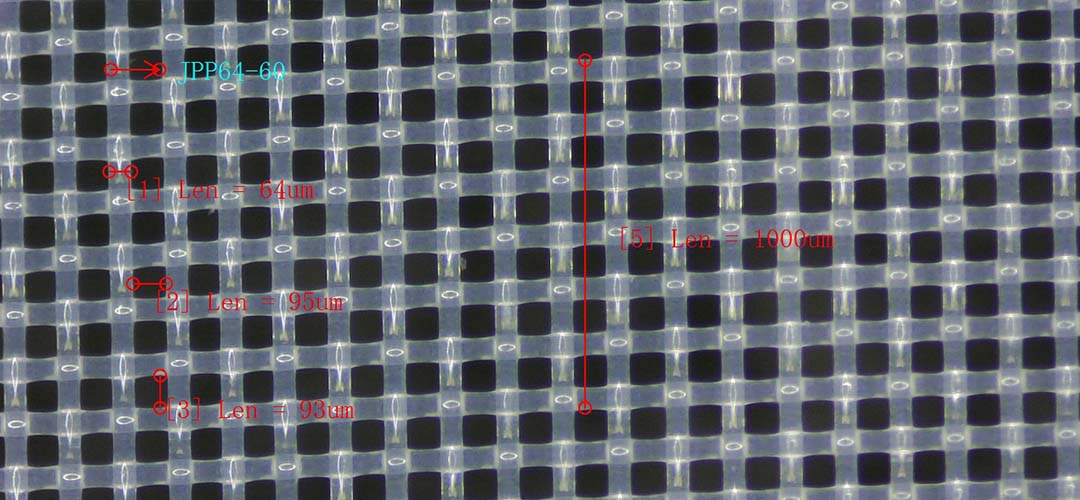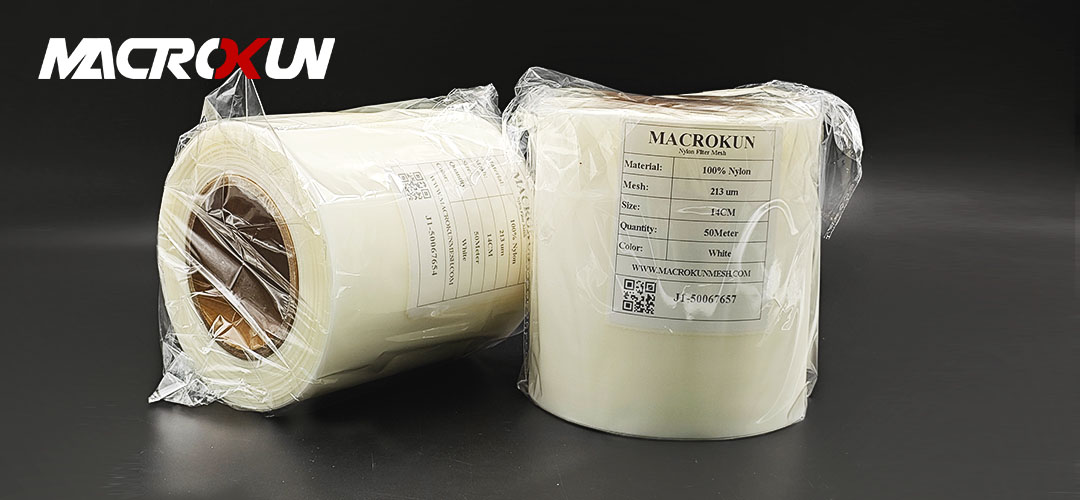In the world of high-precision manufacturing, every detail matters. From intricate machinery to delicate components, the success of a manufacturing process hinges on the ability to maintain precision and accuracy at every step. One often-overlooked but crucial element in high-precision manufacturing is the use of fine nylon netting.
Fine nylon netting is a versatile material that offers a wide range of benefits for manufacturers looking to achieve the highest levels of precision in their processes. One of the key advantages of using fine nylon netting is its ability to provide a protective barrier against contaminants. In a manufacturing environment where even the smallest particle can cause defects or malfunctions, having a reliable barrier in place is essential. Fine nylon netting acts as a filter, preventing dust, debris, and other contaminants from entering sensitive equipment or components.
Another benefit of fine nylon netting is its ability to provide support and stability for delicate materials. In high-precision manufacturing, even the slightest movement or vibration can have a significant impact on the quality of the final product. Fine nylon netting can be used to secure components in place, reducing the risk of damage or misalignment during the manufacturing process. This added stability helps to ensure that each component is produced with the highest level of precision possible.
In addition to providing protection and stability, fine nylon netting also offers a level of flexibility that is unmatched by other materials. Its lightweight and pliable nature make it easy to work with, allowing manufacturers to customize the netting to fit their specific needs. Whether it’s creating a custom barrier for a piece of equipment or designing a support structure for a delicate component, fine nylon netting can be easily manipulated to meet the unique requirements of any manufacturing process.
Furthermore, fine nylon netting is a cost-effective solution for manufacturers looking to improve the precision of their processes. Compared to other materials, such as metal or plastic, nylon netting is relatively inexpensive and readily available. This affordability makes it an attractive option for manufacturers who are looking to enhance the quality of their products without breaking the bank. By incorporating fine nylon netting into their manufacturing processes, companies can achieve higher levels of precision without incurring significant additional costs.
Overall, the benefits of using fine nylon netting in high-precision manufacturing are clear. From providing protection against contaminants to offering stability and flexibility, nylon netting is a versatile material that can help manufacturers achieve the highest levels of precision in their processes. Its cost-effectiveness and ease of use make it a practical choice for companies looking to improve the quality of their products without sacrificing efficiency.
In conclusion, fine nylon netting plays a crucial role in supporting high-precision manufacturing processes. Its ability to provide protection, stability, and flexibility make it an invaluable tool for manufacturers looking to achieve the highest levels of precision in their operations. By incorporating fine nylon netting into their processes, companies can improve the quality of their products while also reducing costs and increasing efficiency. With its many benefits and practical applications, fine nylon netting is a must-have material for any manufacturer striving for excellence in high-precision manufacturing.
Fine nylon netting is a versatile material that has found a wide range of applications in precision engineering. From filtering out impurities in liquids to providing support for delicate components during manufacturing processes, fine nylon netting plays a crucial role in ensuring high levels of precision and accuracy in various industries.
One of the key applications of fine nylon netting in precision engineering is in the filtration of liquids. The fine mesh of the netting allows it to capture even the smallest particles, ensuring that the liquid being filtered is free from impurities. This is particularly important in industries such as pharmaceuticals and electronics, where even tiny contaminants can have a significant impact on the quality of the final product.
In addition to filtration, fine nylon netting is also used to provide support for delicate components during manufacturing processes. For example, in the production of electronic devices, fine nylon netting can be used to hold small components in place while they are being soldered or assembled. This helps to ensure that the components are positioned correctly and securely, leading to higher levels of precision and accuracy in the finished product.
Another important application of fine nylon netting in precision engineering is in the creation of custom molds and templates. The flexibility and durability of nylon netting make it an ideal material for creating intricate molds and templates that can be used to produce complex shapes with high levels of precision. This is particularly useful in industries such as aerospace and automotive, where components need to be manufactured to very tight tolerances.
Furthermore, fine nylon netting is also used in the production of precision tools and equipment. The strength and durability of nylon netting make it an ideal material for creating tools that can withstand the rigors of high-precision manufacturing processes. For example, nylon netting can be used to create cutting tools that can produce intricate shapes with high levels of accuracy, or to create fixtures that hold components in place during machining or assembly.
Overall, fine nylon netting plays a crucial role in supporting high-precision manufacturing processes across a wide range of industries. Its versatility, strength, and durability make it an ideal material for a variety of applications, from filtration to component support to mold creation. By incorporating fine nylon netting into their manufacturing processes, companies can ensure that they are able to achieve the levels of precision and accuracy required to produce high-quality products consistently.
In conclusion, fine nylon netting is a valuable tool for precision engineering, providing support and stability for delicate components, filtering out impurities in liquids, creating custom molds and templates, and producing precision tools and equipment. Its versatility and durability make it an essential material for industries that require high levels of precision and accuracy in their manufacturing processes. By utilizing fine nylon netting effectively, companies can ensure that they are able to meet the demanding requirements of modern manufacturing and produce products of the highest quality.
In the world of high-precision manufacturing, quality control is paramount. Every detail, no matter how small, can have a significant impact on the final product. This is especially true when it comes to fine nylon netting, which is used in a wide range of industries, from aerospace to medical devices.
Fine nylon netting is known for its strength, durability, and flexibility. It is used to filter liquids, separate materials, and protect delicate components. In order to meet the exacting standards of high-precision manufacturing, it is essential that the quality of the netting is closely monitored throughout the production process.
One of the key ways that quality control is maintained in the production of fine nylon netting is through the use of advanced technology. State-of-the-art machinery is used to ensure that the netting is woven to precise specifications, with each strand of nylon carefully measured and inspected. This level of precision is essential in order to guarantee that the netting will perform as expected in its intended application.

In addition to technological advancements, quality control in fine nylon netting production also relies on the expertise of skilled technicians. These professionals are trained to identify even the smallest imperfections in the netting, ensuring that only the highest quality products are sent out to customers. Their attention to detail and commitment to excellence are what set fine nylon netting apart from other materials on the market.
Another important aspect of quality control in fine nylon netting production is the use of rigorous testing procedures. Before the netting is shipped out, it undergoes a series of tests to ensure that it meets all necessary specifications. This includes tests for strength, durability, and flexibility, as well as tests to ensure that the netting is free from defects or flaws.

By maintaining strict quality control measures throughout the production process, manufacturers of fine nylon netting are able to guarantee that their products will perform reliably and consistently in a wide range of applications. This level of quality assurance is essential for industries where precision and reliability are of the utmost importance.
In conclusion, the importance of quality control in fine nylon netting production cannot be overstated. By using advanced technology, skilled technicians, and rigorous testing procedures, manufacturers are able to ensure that their products meet the highest standards of quality and performance. This commitment to excellence is what sets fine nylon netting apart as a material of choice for high-precision manufacturing.
Fine nylon netting is a critical component in high-precision manufacturing processes, providing support and protection for delicate materials and products. As technology continues to advance, the demand for fine nylon netting that can meet the exacting requirements of modern manufacturing is on the rise. In this article, we will explore how fine nylon netting supports high-precision manufacturing and discuss future trends in fine nylon netting technology.
One of the key benefits of fine nylon netting in high-precision manufacturing is its ability to provide a stable and secure environment for delicate materials. Whether it is used to protect fragile components during transportation or to provide support during the manufacturing process, fine nylon netting plays a crucial role in ensuring that products are produced to the highest standards of quality. The fine mesh structure of nylon netting allows for airflow and visibility while still providing a barrier against dust, debris, and other contaminants that could compromise the integrity of the product.
In addition to providing protection, fine nylon netting also offers flexibility and versatility in high-precision manufacturing applications. The lightweight and durable nature of nylon netting make it easy to work with and adapt to a wide range of manufacturing processes. Whether it is used as a filter, a support structure, or a protective covering, fine nylon netting can be customized to meet the specific needs of each manufacturing application.
As technology continues to evolve, so too does the demand for fine nylon netting that can keep pace with the increasing complexity of high-precision manufacturing processes. Manufacturers are looking for netting solutions that offer enhanced strength, durability, and performance to meet the demands of modern production environments. This has led to the development of new technologies and materials that are designed to improve the performance and reliability of fine nylon netting in high-precision manufacturing applications.
One of the key trends in fine nylon netting technology is the use of advanced materials and manufacturing techniques to enhance the strength and durability of the netting. By incorporating materials such as carbon fiber or Kevlar into the nylon netting structure, manufacturers can create netting that is stronger and more resistant to wear and tear. This allows for longer-lasting and more reliable performance in high-precision manufacturing applications, where the netting is subjected to high levels of stress and strain.
Another trend in fine nylon netting technology is the development of specialized coatings and treatments that enhance the performance of the netting in specific manufacturing applications. For example, anti-static coatings can be applied to nylon netting to prevent the buildup of static electricity, which can damage sensitive electronic components. Similarly, water-resistant coatings can be used to protect nylon netting from moisture and humidity, ensuring that it remains effective in a wide range of environmental conditions.

In conclusion, fine nylon netting plays a crucial role in supporting high-precision manufacturing processes by providing protection, support, and flexibility for delicate materials and products. As technology continues to advance, the demand for fine nylon netting that can meet the exacting requirements of modern manufacturing is on the rise. By incorporating advanced materials, coatings, and manufacturing techniques, manufacturers can create netting solutions that offer enhanced strength, durability, and performance in high-precision manufacturing applications.
Pre: 300 Micron Nylon Mesh: Durable Solutions for Industrial Filtration
Next: Where to Buy Nylon Netting by the Yard for Crafting and DIY Projects

MACROKUN has established long-term and stable cooperative relations with many transportation companies such as China Post, DHL, FEDEX, USPS, UPS, etc. Of course, MACROKUN can also provide air and sea transportation. The powerful logistics system enables all MACROKUN'S Printing Mesh, Filter Mesh and Filter Bags and so on to be easily and efficiently transported to any place. For quotes and inquiries, please email our sales team.





